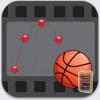 |
Big Ideas of Science enable the building of in depth knowledge around basic concepts and the support towards big and more complex concepts. | |
|
For an educator is important to find basic concepts used also in the school curricula and to find inspiration on how to address these concepts in an innovative, meaningful and appealing way. |
ISE can be a one-stop-shop for teachers where they will find eLearning tools organized in an effective manner: from small to complex ideas in science. |
Help your students to relate with what you are teaching with the examples of our daily lives Big Ideas of Science are suggesting. |




















































































































